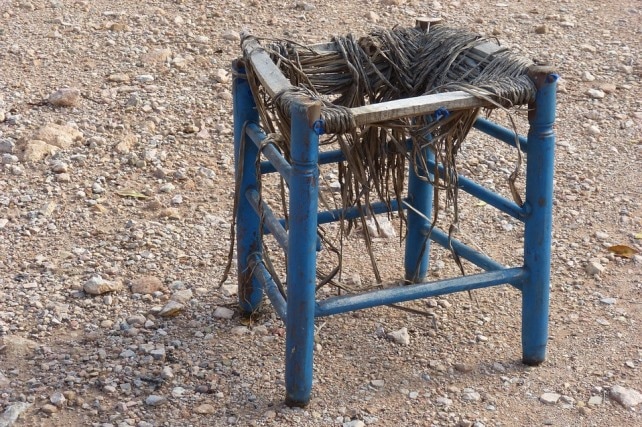Then there are things that are meant to be consumed over time: they start out brand new and exciting, and then either are used up gradually, or they slowly become part of the décor and just stay there for no apparent reason. It appears that there is something like a temporal spectrum for objects: some remain the way they are, and some degrade in some way. The tricky bit is that – once an item has entered our life – it becomes part of what we believe is OURS, and the majority of people hangs on to what’s theirs for dear life. It becomes part of who we are, sometimes objects are used to define who we are, even! It is important to realise that temporal distinction, because it is easier to let go of an object that we understand has come into our home temporarily. Interestingly, the majority of our belongings turn out to be of a temporary nature. I believe that the initial reason why an object has been introduced into the home may be a first indicator if something is going to be long-lived or sits on the short-term end of the spectrum. Are we looking at a bare necessity? Is it something that comes in regularly? Is it something that is gradually used up? Is it a novelty item? Was it bought on impulse? The list goes on, but you can probably see that some each of those reasons – quite apart from its psychological impact and background – has an impact on how long this items remains interesting and useful. Necessities like a bed or kitchen ware are intended to be used for a long time and they tend to be of a quality that keeps them in shape for a good while. Things like shoes or clothes are going to degrade over time and need replacement eventually. Newspapers, flyers, cut flowers, and the like are of a very fleeting, short-term nature. If we were to look at every item in our home from a purely practical point of view, it would stand to reason that short-term items would be chucked out when their usefulness had expired, the degraded ones to be replaced when the time comes and the long-term ones kept until they fall apart. However, this is not how we behave: humans are collectors and we tend to hold on to things for too long, because we have minds that come up with strange ideas. So let’s bring back the psychology of clutter: why don’t we make those logical choices? Because every object – irrespective of its usefulness – was brought into the home not just for a practical reason, but our decision was also based on emotions. One item came in because we liked the look of it, another came in because we failed to remember we had one like it already. Some may be gifts, some may stay because we ‘never got around to sifting through them’, others we keep ‘just in case’, or because they invoke memories. These and other emotional backstories are what makes chucking out the broken or useless or ‘too much’ stuff such a difficult task. Our things provide a sense of security: our homes being the cocoon we return to for peace and quiet, we want the place to contain things we love. While that is certainly an important function of a home, living in a place full of things (many of them utterly useless on a practical level) is not necessarily a good thing. We cling to the past and leave no space for the present. Or the future, for that matter. But this is a different subject altogether… However, there is hope: if we can learn to separate the practical requirements (this thing is useless, or broken) from the emotional attachment (it’s a gift from X, or I bought this on Z Island), there may be a better chance of letting go. If you can reason that something is broken, the emotions might fall into perspective. Perhaps you’ll realise that you never used that gift and you only keep it out of a sense of obligation. Maybe you find that you remember your trip to Z Island without a trinket that is hidden away in the back of a drawer. Strangely enough, we ARE able to let go of things in very specific cases: just think of your Christmas tree! Rarely do we come across an item that is so closely related to emotions than at this time of year. The tree is brought in and decorated, we sit around it for weeks, and generally enjoy it to be here. But still it is easily removed, because we understand that this is a short-term object. Clearly we CAN distinguish. It’s just a matter of applying the same sense of practicality to the rest of the household… If you have enjoyed reading this, you may find these other articles interesting: Comments are closed.
|
Ask the ClutterMeisterIdeas to help clear away the mess in your homes and in your minds.
Feel free to share any of my posts, but please put in a backlink to the original blog post. Thank you. The author
Hi, my name is Tilo Flache. My mission: help clients declutter mind and space.
This blog contains pointers for your journey towards a happier living experience. Archives
November 2023
|




 RSS Feed
RSS Feed




